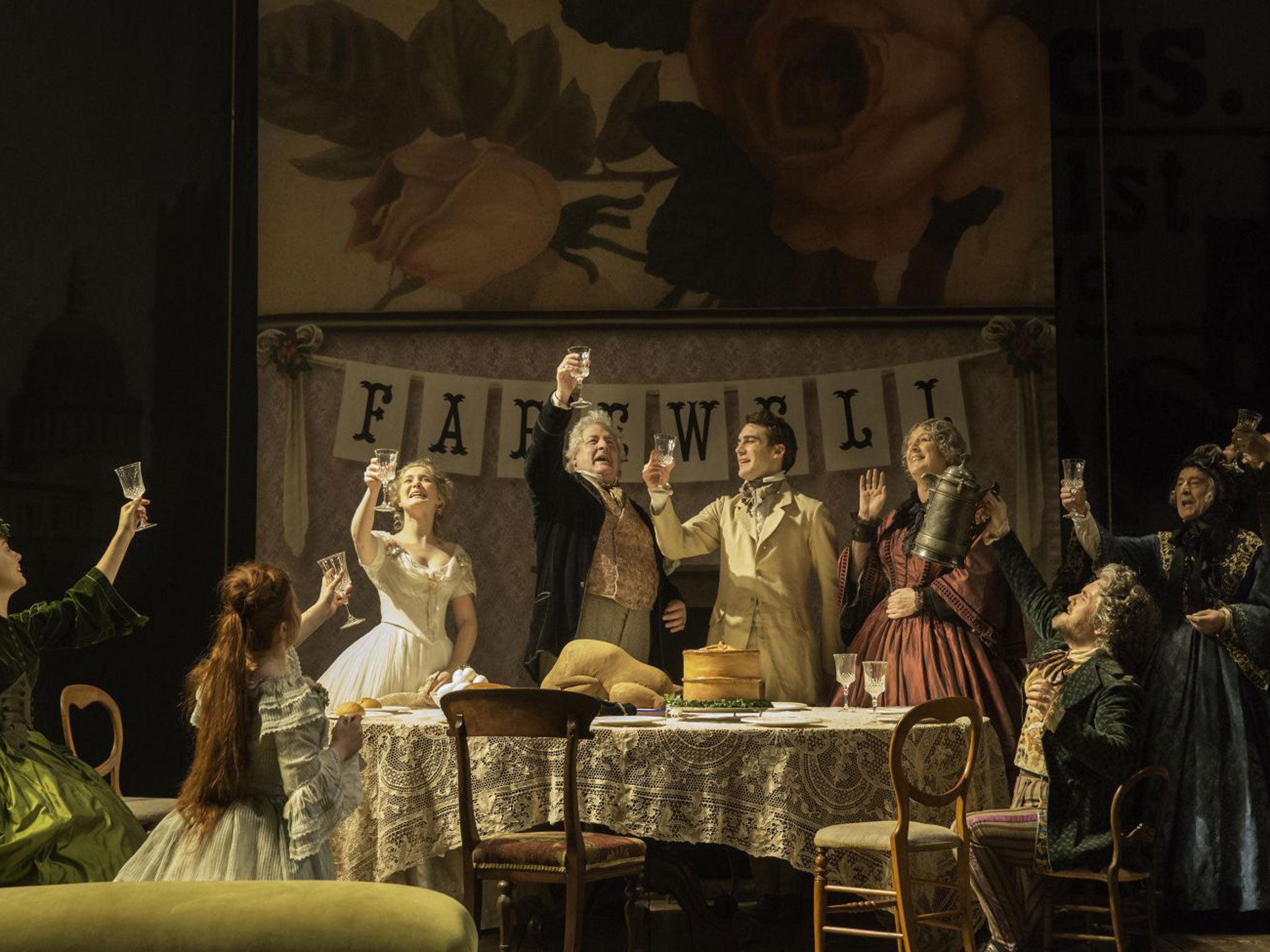Theatre review: Trelawny of the Wells - Here's to us, theatre people to the corps
Social mobility gets top billing in a pair of revivals packed with period detail

Film director Joe Wright, who gave Anna Karenina an elaborate theatrical framework, slips backstage again in Trelawny of the Wells, his first stage production. Arthur Wing Pinero's 1898 comedy (brushed up by Patrick Marber) follows actress Rose Trelawny as she ditches her thespian friends at the (Sadler's)Wells theatre for a young gentleman. Fitting in with his uptight, upper-class relatives, however, proves no easy role – stifled by demands that she neither sing nor sneeze, she's soon back on the boards.
Her sojourn in Mayfair seems to have knocked the stuffing out of Rose, who can no longer act in the required grand, declamatory style. But a change of theatrical fashion is waiting in the wings – the company stages a new, (comparatively) realist script by player-turned-playwright Tom Wrench. Pinero's own writing being tightly constructed – plot developments flared up for the audience with all the subtlety of a gas lamp – this play-within-a-play neatly mirrors the lightweight romantic story of Trelawny too.
The Donmar is tricked out like an old Victorian theatre, with shell-shaped footlights, barrel organ and sing-songs during scene changes, painted flats and backcloths – although the latter will drop for the final scenes. They are not the only thing that drops. Throughout, the luvvies' heightened acting style is mocked, but also spills over: most of Trelawny is performed with excessive emotion and comic exaggeration, from pantomimic men in frocks to knockabout slapstick. But just as the actors, when rehearsing Wrench's play, must learn a new way of performing – with "great passion but no demonstration of it" – so Wright's cast slowly, fortunately, slip into more nuanced, natural performances as the show goes on.
Wright's production is good on movement; the ensemble cast keep things trippingly light as they pirouette across the stage. It's exuberant too in caricaturing stage stereotypes – Amy Morgan as Trelawny lives up to her name, a blossomy English rose, and while Daniel Mays camps it up as a high-falutin' leading man, Aimeé-Ffion Edwards nails the role of his gobby, giddy girlfriend.
It could be seen as bold – or ingratiating – of Wright to begin a theatre career by paying homage to the art-form itself, but this clearly stems from real affection. However, the broad comedy can wear thin. Trelawny is as frothy as Rose's chiffon gown, and hardly more substantial.
Rutherford & Son (Playhouse, Oxford ****) also features a young woman parachuted into a world of frosty relations and upper-class pretensions. Again, generation gaps and a struggle for upward social mobility are dramatised, albeit in a rather more serious tone.
Mary moved in with her husband's overbearing father, John Rutherford, for the sake of her infant son's health. Rutherford runs the home with tyrannical force, and is prepared to sacrifice the happiness of his three children for the success of his glass-making company.
Written by Githa Sowerby in 1912 – when it was rare for a woman to pen a play, let alone a smash hit – it was based on her grandfather, and set in Newcastle. This fine revival, showcasing the impressive muscularity of her writing, is by Northern Broadsides. Blake Morrison transposes the action smoothly to Yorkshire, sprinkling nowts and 'appens over the script. Jonathan Miller directs an assured production, led by company founder Barrie Rutter as Rutherford – a role that could have been written for him.
A light box functions as an ornate glass ceiling; the room is stiffly furnished in polished wood, gloomy but for a few candles in a December chill. Miller likens the text to Chekhov, but in its unravelling of bruised relationships, thwarted ambitions and family secrets, it even prefigures later American writers such as Eugene O'Neill or Arthur Miller.
Catherine Kinsella as Mary is ardent, humane, intelligent – believable as both the only high-minded inhabitant of the house, and a surprisingly shrewd businesswoman. Nicholas Shaw as her husband is twitchy, fluttery, a little too petulant. In contrast, forelock-tugging worker Martin (Richard Standing) succeeds through stillness. A tricky character; Miller makes him the stoical, silent type, and it works. And Sara Poyzer as daughter Janet is so bitter that when she finally speaks truth to power, raging at Rutherford, it's with such acidity that the audience recoils.
But she's nothing on Rutter's Rutherford. He puffs out his chest, commanding all hearth and home – and the auditorium too. There is dark humour in his scathing comments, but Rutter lets us see this domineering patriarch's own internal tragedy, while still punching home his destructive cruelty. Weighty stuff, in the best possible way.
'Trelawny of the Wells' (0844 871 7624) to 13 Apr; 'Rutherford & Son' touring to 1 Jun
Critic's Choice
Love Letters Straight from Your Heart is a moving experimental piece: actor-DJs read out dedications to loved ones written by anonymous audience members. It's at the Swan Theatre's Ferguson Room, Stratford-upon-Avon (Thu-Sat). In London, James McAvoy's Macbeth is a brutal action hero with a tender side, at the Trafalgar Studios (to 27 Apr).
Join our commenting forum
Join thought-provoking conversations, follow other Independent readers and see their replies
Comments